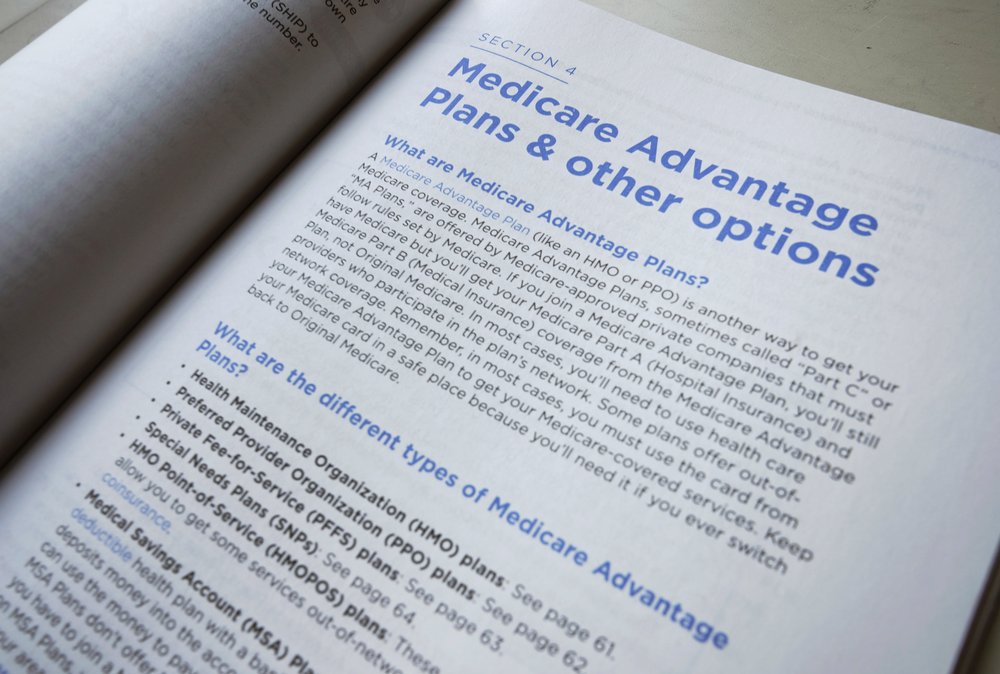250K NYC retirees must switch to new Medicare coverage after union leaders favor privatized plan
March 9, 2023, 12:42 p.m.
The switch will provide some new benefits, but critics of the change have raised concerns that the Medicare Advantage plan will be more likely to require prior approval for certain medical services and potentially deny coverage.

A committee of New York City labor leaders voted to approve a new Aetna-run Medicare Advantage plan for municipal retirees Thursday – a move that will force many former city workers off of their existing health coverage. The Municipal Labor Committee vote came out in favor of the plan, according to United Federation of Teachers President Michael Mulgrew, who is executive vice chair of the committee.
Some 250,000 retired city workers – and any dependents who use their insurance – will automatically be enrolled in Aetna’s new Medicare Advantage plan on Sept. 1, unless they decide to opt out, according to documents that were provided to the Municipal Labor Committee ahead of their vote and shared with Gothamist. For those currently enrolled in SeniorCare, the city-funded plan that supplements traditional Medicare, prescription drug coverage under the new Aetna plan will begin later, in January 2024. SeniorCare will ultimately be discontinued.
The switch will provide some new benefits, such as routine hearing and vision exams, hearing aids, and mental health care provided via telemedicine. But critics of the change have raised concerns that the Medicare Advantage plan will be more likely to require prior approval for certain medical services and potentially deny coverage. A recent federal investigation found that Medicare Advantage plans frequently deny coverage for services inappropriately.
Some retirees reportedly protested outside of union offices and City Hall ahead of Thursday’s vote.
Retirees are protesting as the Municipal Labor Committee is set to vote on the Medicare Advantage plan today. They’re planning to march past the offices of DC37, UFT, PSC and OLR and conclude at City Hall. pic.twitter.com/KpBDCRShoq
— Madina Touré (@madinatoure) March 9, 2023
The Municipal Labor Committee vote propels forward a long-delayed effort by Mayor Eric Adams to save money on city health benefits by switching retirees from traditional Medicare, bolstered by SeniorCare, to a privately run Medicare Advantage plan. The switch, which was originally proposed by former Mayor Bill de Blasio, could bring in an estimated $600 million annually in federal subsidies that are available to Medicare Advantage plans, according to the city.
"Aetna's much-improved Medicare Advantage proposal, with new guarantees about prior authorization of services and enhanced other benefits, has been approved overwhelmingly by the Municipal Labor Committee,” Mulgrew said in an emailed statement.
The city’s effort to transition retirees has been mired in lawsuits for years and faced widespread opposition from those who fear their coverage under Medicare Advantage won’t be as good. Some retirees have fought to stay on traditional Medicare without paying extra, and this group loses out under the terms of the new deal.
Those retirees who want to avoid joining a Medicare Advantage plan altogether can waive city health benefits and remain on traditional Medicare – but they will have to pay out of pocket for any supplemental coverage. The monthly premium for Medicare Part B, which covers services including doctors’ visits and medical equipment, is $164.90 for those earning less than $97,000 a year. The current SeniorCare plan is premium-free, and the same will be true of the Aetna plan that will replace it.
A side-by-side comparison between SeniorCare and Aetna’s Medicare Advantage plan reveals that the new coverage has a lower annual deductible
The new plan will also offer some benefits that were not covered under SeniorCare. A side-by-side comparison between it and Aetna’s Medicare Advantage plan reveals that the new coverage has a lower annual deductible – $150 compared with $276 under SeniorCare. The Medicare Advantage deductible will also be waived during the 2023 calendar year.
The maximum amount that members can pay out of pocket for medical services in a given year is also limited to $1,500 under the Aetna plan, while there was no maximum under SeniorCare.
About 25,500 retirees are already enrolled in a separate Medicare Advantage plan the city offers as an alternative to SeniorCare, known as HIP VIP and they will not have to switch plans, according to City Hall spokesperson Jonah Allon.
The Municipal Labor Committee came out in favor of the Aetna plan by 79%, with votes weighted by how many members are in each union, according to the committee’s chair and Teamsters Local 831 President Harry Nespoli. The New York Daily News reported that 26 union leaders voted against the measure.
“We will continue to monitor its implementation to ensure that Aetna meets its obligations to our retirees," Mulgrew stated.
Mayor Adams added, via a spokesperson, that City Hall and the Municipal Labor Committee worked diligently to negotiate a contract with Aetna, while also hearing the concerns of retirees.
“In the coming days, we will communicate with all city retirees to provide details and next steps for the plan, and Aetna will be providing additional resources to answer any questions about the plan,” Adams said. “This Medicare Advantage Plan is in the best interests of retirees and taxpayers. We thank the MLC for their steadfast partnership throughout this process.”
The criticism
Often it’s the people who are sickest and need the most care who face the greatest barriers to coverage under Medicare Advantage plans, said Barbara Caress, who teaches health policy at Baruch College and previously served as director of strategic and policy planning for the union 32BJ’s benefit funds.
“It covers 95% of the people 95% of the time,” Caress said of Medicare Advantage. “But for the other 5%, and those are the people who are sickest and most in need of very expensive care, it isn't as good. And everybody who's over 65 imagines themselves in that group, even if they're not [currently] in that group.”
Caress said she is enrolled in a Medicare Advantage plan herself because, for her, it is cheaper than paying for supplemental coverage under traditional Medicare. But she said if she got sick and needed more complex care she would switch to traditional Medicare.
At a City Council hearing on the switch in January, city officials said Aetna’s Medicare Advantage plan was being customized for New York City retirees and wouldn’t have the same issues as other plans bearing this moniker.
We understand the concerns about prior authorization and want to assure retirees that this is not an issue they need to be concerned about.
Claire Levitt, deputy commissioner for the Mayor’s Office of Labor Relations
“We understand the concerns about prior authorization and want to assure retirees that this is not an issue they need to be concerned about,” Claire Levitt, deputy commissioner for the Mayor’s Office of Labor Relations, said at the hearing.
According to a summary of the plan that was shared with Gothamist, Aetna won’t require prior authorization for any medical services for the first 120 days after coverage begins. After that, some types of care will require prior approval – but it will only apply to about 20% of the services Aetna typically subjects to this type of scrutiny.
Services that will need prior authorization include hospital inpatient care, physical therapy, long-term nursing care and some specialty medications – with exceptions for emergency or urgently needed care. This list will be subject to review every two years and could change, with the approval of the city and Municipal Labor Committee.
Aetna will have to report on its use of prior authorization and any denials of care to the city.
In a statement, Aetna spokesperson Ethan Slavin said the plan underwent a “thorough” review by the Municipal Labor Committee. “We are confident that our customized plan would be of great benefit to the city of New York retirees,” Slavin said.
Some retirees have also raised concerns about whether all of the doctors they currently see will accept their new insurance. But at the City Council hearing in January, Levitt said about 85% of the doctors who currently accept SeniorCare would also be in Aetna’s network, and another 10% have indicated they would accept an Aetna Medicare Advantage plan even if they are not in-network. The plan documents shared with Gothamist indicate that Aetna will offer the same reimbursement to out-of-network health care providers as those it contracts with.

Earlier this year, members of the New York City Council were considering a request from Adams to change the city’s administrative code to allow the city to charge retirees a premium to remain on SeniorCare. At the time, retirees who spoke at a Council hearing on the plan were split – with some urging the Council to make the change so they could keep their current coverage, and others suggesting the Council endorse an alternative solution to the Medicare Advantage switch altogether.
Councilmembers ultimately opted not to move forward with the mayor’s request, in effect taking the option to retain SeniorCare coverage off the table.
But one prominent advocate is still pushing for last-minute action. Marianne Pizzitola is a retired FDNY worker who serves as president of the New York City Organization of Public Service Retirees, a nonprofit formed to oppose the Medicare Advantage switch. She said she has been trying to get councilmembers to introduce legislation prohibiting the administration from “diminishing” retirees’ benefits, including by shifting them onto a Medicare Advantage plan.
Councilmember Carmen de la Rosa, who initially introduced the bill to change the city code to allow retirees to pay to stay on SeniorCare, did not respond to a request for comment on whether the Council would take up the issue again.
This story was updated with quotes from Municipal Labor Committee members, a comment from Mayor Adams and details on Thursday’s vote.